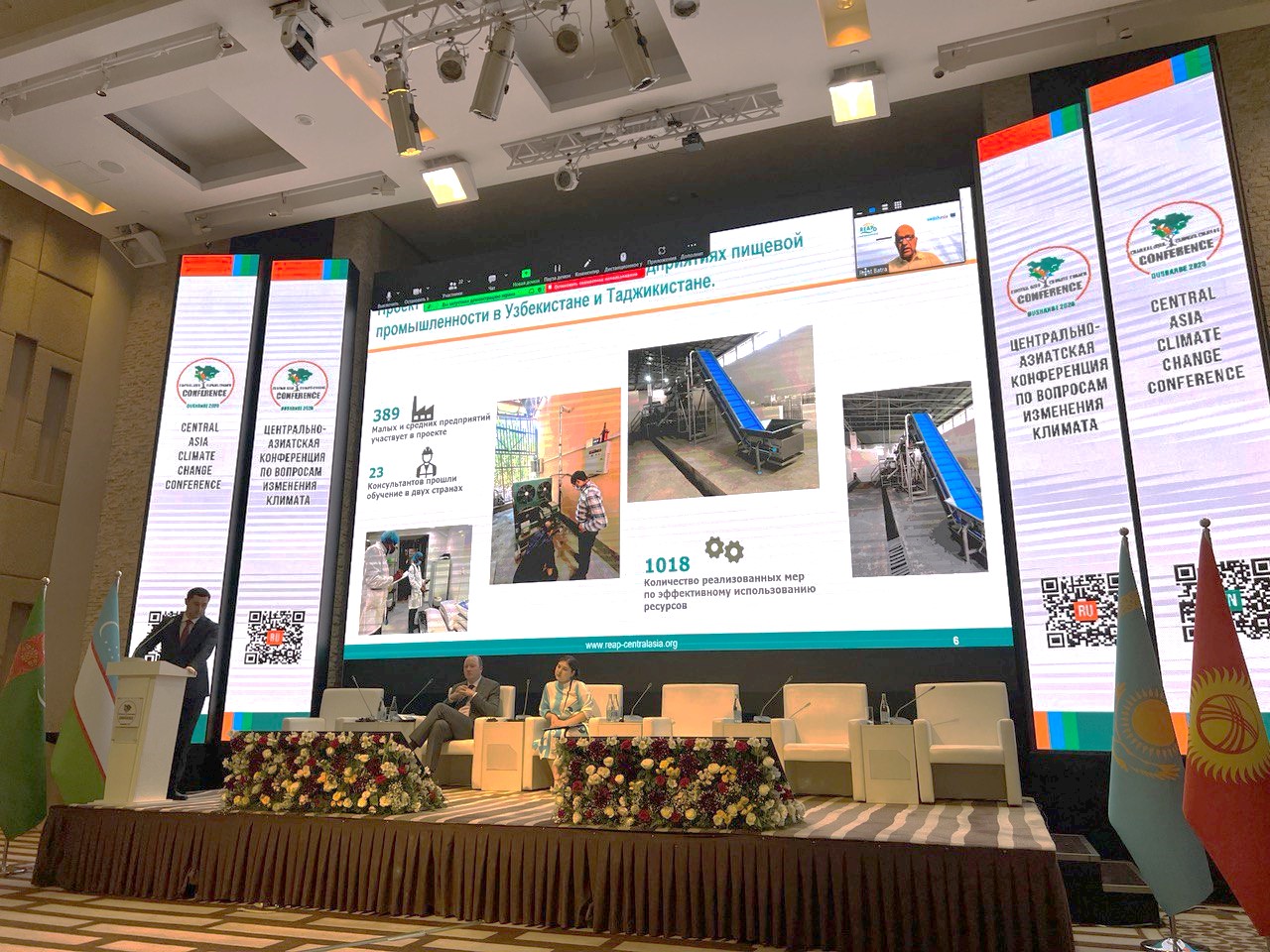Dushanbe - Tajikistan - 16 May 2023 - Rajat Batra, Senior Technical Expert of the REAP project presented substantive conclusions on the implementation of resource efficiency and circular economy practices in Central Asia at the 5th Central Asia Climate Change Conference (CACCC-2023).
As noted, the introduction of resource efficiency (RE) and circular economy (CE) practices in Central Asian countries poses some challenges.
Firstly, many companies do not use RE and CE practices due to low incentives, limited awareness and funding difficulties.
Secondly, business refuses to invest in resource-saving measures because of a lack of regulation and unprofitable pricing policies.
Thirdly, the concept of resource efficiency and circular economy is relatively new for Central Asia, leading to a lack of interest and demand from consumers for sustainable consumption and production (SCP) indicators.
Another obstacle is the lack of qualified technical consultants, especially for small and medium-sized enterprises (SMEs), who need support in minimising investments in inefficient equipment and to better understand costs during the operational period.
Awareness of finance is low, financial institutions have limited knowledge of SCP and have high collateral and interest rate requirements. SMEs also face low awareness and financial literacy, which further limits their ability to adopt resource-saving technologies.
The REAP project is designed to help overcome these problems in Central Asia. Its scope of activities includes:
· Regulatory and legal support,
· Awareness-raising campaigns
· Working with financial institutions to develop tailored financing options and improve financial literacy,
· Engaging technical consultants to help enterprises, especially SMEs, to seamlessly adopt resource efficiency and circular production practices.
The REAP project is implemented by an international consortium (funded by the European Union), including the National Association of Small and Medium Enterprises of Tajikistan (NASMB), the Chamber of Commerce and Industry of Uzbekistan (CCIU), the German Consulting Bureau adelphi, the Association for the Promotion of Recycling and Environmental Protection in Austria (AREC), STENUM Asia Society for Sustainable Development (STENUM Asia), the Energy and Resources Institute (TERI). The consortium is led by the Regional Environmental Center of Central Asia (CAREC).

